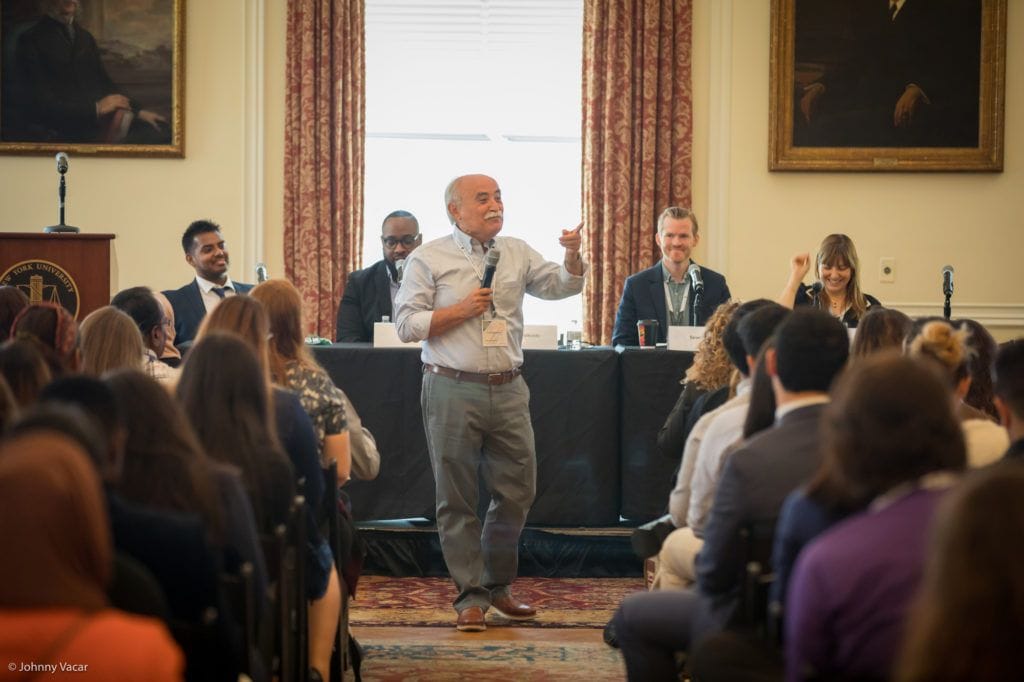Just weeks after moving out of his dorm last spring due to the coronavirus campus shutdown, Adam Goudjil C23 spoke with Wharton lecturer and Zicklin Center for Business Ethics Research senior fellow Djordjija Petkoski. As the leaders of Ideas for Action, a Wharton student-led subsidiary program of the Zicklin Center, the two discussed how they could somehow address both the students’ loss of summer internships and postponement of job offers, as well as a health crisis presented by the virus. Petkoski had an idea.
What resulted was the Africa COVID-19 Challenge, a program designed for students and young professionals to create private sector-based solutions for weak public health-care infrastructures in Africa exacerbated by the pandemic. “We were thinking about Penn students first when we came up with this initiative,” says Ideas for Action co-president Goudjil. “We wanted to do this as an opportunity, a mutually beneficial one, where you’re developing social human capital for Africa’s COVID-19 response and you’re actually gaining some experience as a student.”
Between the initiative’s debut in May and the submission deadline in the fall, Ideas for Action received over 400 proposals for the Africa COVID-19 Challenge. Though the program geared its advertising toward Penn students, submissions came in from students around the world. Twenty to 30 proposals were selected for additional review, with concepts including using microfinance loans to close distance barriers in receiving health-care services and improving local information distribution using an SMS-based platform.
“It was all hands on deck over the summer because a lot of students had lost internships, lost jobs,” says Ideas for Action co-president Pallavi Menon W21 C21 of the response to the Challenge. “There were a lot of students who put in the time for this. So that was really exciting.”
The Ideas for Action team was able to assemble the Africa Challenge quickly in part due to the infrastructure established by their existing programs. Their flagship initiative, also titled “Ideas for Action,” is an international challenge developed five years ago around the United Nation’s Sustainable Development Goals (SDG) framework, which set objectives to achieve a more equitable global community, ranging from climate action to gender equality.
“When the conversation started about the UN Sustainable Development Goals, one area I noticed was not properly addressed was how to involve young people,” Petkoski says. With 20 years of experience with the World Bank, Petkoski worked with the World Bank’s senior vice president to launch the Wharton-led global Ideas for Action initiative for 18 to 35-year-olds to propose innovative ideas for reaching the SDGs.
“In addition to providing a platform, we also wanted to promote the leadership role that these young people can have,” Petkoski says, “One thing is to write the proposal, the other is how you lead by initiative.”
Over three years ago, Wharton’s Ideas for Action developed their second international program, this time with an emphasis on female leadership. SDGs&Her provides a platform in which women entrepreneurs present their established businesses, with the chance to receive development assistance from partners Wharton, the World Bank, the United Nations Development Programme, and United Nations Women.
Inspired by the two SDG initiatives, Petkoski worked with Wharton undergraduate vice-dean Diana Robertson and Legal Studies chair Richard Shell to develop a new curriculum for a senior capstone course, LGST 401: Global Social Responsibility.
“We are trying to make a more close relation between the cutting edge theoretical knowledge that Wharton students are getting with solving real-life problems,” Petkoski says. Students in the course developed 10 proposals for the Africa COVID-19 Challenge utilizing the resources provided by Ideas for Action and guest speakers, including from the World Bank. Finalists from the Africa Challenge will be announced in early 2021 and given incubation support from Wharton and the World Bank.
“Wharton is positioning itself as a school addressing some of the most important development issues globally,” says Petkoski, “It’s getting broader international recognition and going beyond the excellence in finance that it’s always been known for.”
As the Zicklin Center’s Ideas for Action initiative continues to grow with the demands of the SDGs, Petkoski assures students that “this is the right time to take generational responsibility for what is going on in the world.”

























